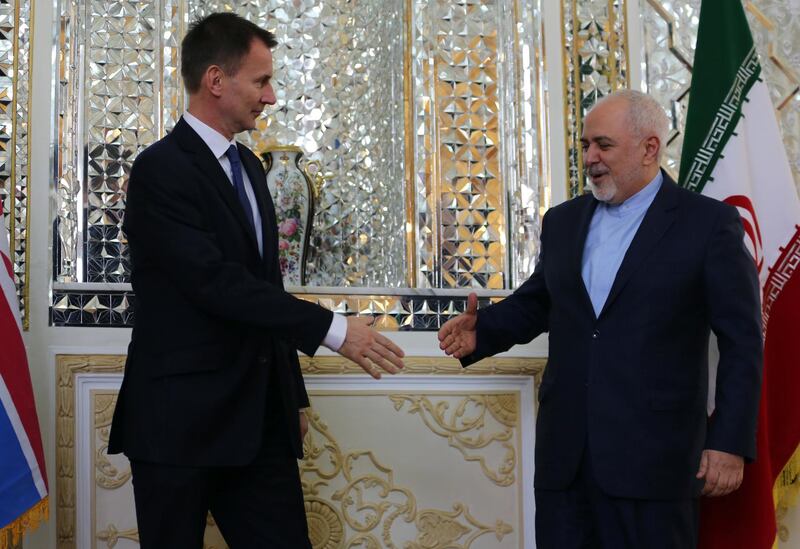Britain’s Foreign Secretary has warned that Iran must cease its manipulation of British prisoners for political purposes and used a trip to Tehran to demand victims are set free immediately.
In the first visit to Tehran by a western foreign minister since the US unilaterally pulled out of the Iran Nuclear deal (JCPOA) in May, Jeremy Hunt raised the case of Nazanin Zaghari-Ratcliffe, a British citizen held in an Iranian jail for two-and-a-half years, accused of spying.
Following a meeting with Iranian Foreign Minister Javad Zarif, he said that cases such as Ms Zaghari-Ratcliffe’s must not serve as a pawn on the diplomatic chessboard.
“More than anything, we must see those innocent British-Iranian dual nationals imprisoned in Iran returned to their families in Britain.
“I have just heard too many heartbreaking stories from families who have been forced to endure a terrible separation. So I arrive in Iran with a clear message for the country’s leaders: putting innocent people in prison cannot and must not be used as a tool of diplomatic leverage,” he said.
Mr Hunt has taken a special interest in the case of Ms Zaghari-Ratcliffe, who is one of his constituents. Hopes for her release were raised in August when she was released for three days on temporary license, but she was returned to jail, and talks over her plight have since stagnated.
Britain’s top diplomat also stressed Britain’s commitment to the Iran nuclear deal, “We will stick to our side of the bargain as long as Iran does,” he said.
Though he also warned Iran against its policies elsewhere in the Middle East. “We also need to see an end to destabilizing activity by Iran in the rest of the region if we are going to tackle the root causes of the challenges the region faces,” Mr Hunt said.
He added that the deal “remains a vital component of stability in the Middle East by eliminating the threat of a nuclearised Iran.”
__________
Read more
[ Britain’s Theresa May calls on Iran to release jailed Nazanin Zaghari-Ratcliffe ]
[ UK warns dual nationals against visiting Iran ]
__________
With the exception of the US, the other signatories to the JCPOA - Britain, France, Germany, Russia and China - have insisted that Iran is abiding by the stipulations of deal - struck in July 2015.
However, earlier this year, US president Donald Trump claimed that Iran was not upholding its end of the bargain, and pulled the US out, re-imposing swathes of economic sanctions on Tehran.
The Foreign Office added that Mr Hunt would raise the issue of the Tehran’s military support, including ballistic missiles, for Houthi rebels in Yemen.







